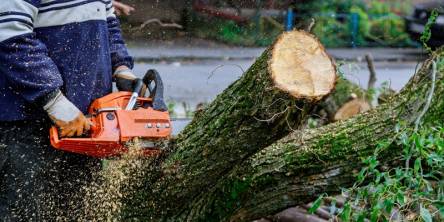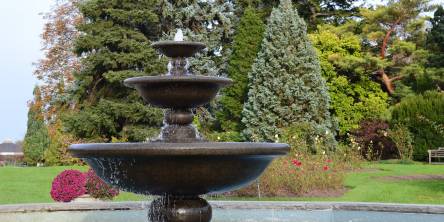Fence Building: Must-Know Things for DIY Project

A fence can be purely decorative, framing your front and back yard, or it can be functional—keeping neighbor’s dogs out, kids in, and prying eyes away. A traditional wooden fence can do both and even tie into your home’s security system.
If your property doesn’t have a fence yet and you’re seriously considering building one due on your own or with the help of the professional fence contractors, there are a few important things involved in fence planning and building you need to know in order to come up with a reasonable project, save your money on materials, avoid certain problems that might occur during the construction and end up with a durable fence that meets your expectations and requirements.
Thorough planning and careful preparation are crucial when you’re willing to embark on a DIY fence building project to successfully put up either a cute picket or a utilitarian chain-link or a privacy fence around your property.
Things to know before building a fence
Check the local codes
Some states and counties impose legal prohibitions on fence building. Some of them set strict construction guidelines regarding the height of the fence and some other features. Make sure that the fence you’re going to build meets the local requirements and you won’t have to spend your time and money on building something you’ll have to take down as soon as the local authorities ask you to do so.
Talk to your neighbors
As you’re going to build a fence on the line, dividing your and your neighbor’s plots, it’s important to make sure that the people who live next to you aren’t completely against your construction. Moreover, sometimes such construction will meet both your and your neighbors’ interests, thus you may talk about splitting the costs of building a fence between your properties to cut your expenses. Anyway, aim for a constructive talk and a compromise.

Mark the site properly
Firstly, you need to make sure that the line you’re going to construct your fence on is definitely the border line of the properties not to go beyond your own territory. Property plans and a land surveyor (he’ll stake out the plot to mark the border lines) will help you do that just fine. Remember to call your gas provider to schedule a free demarcation appointment before you start digging for the post not to disrupt any lines and cause major trouble. If you’re hiring fence contractors to do the job, they should ask you to do that prior to digging as well.
Choose the design and the materials wisely
Fence construction is quite a costly project, especially when it comes to building tall privacy fences or the ones that are made of expensive materials like precast concrete panels or metal fence panels. For modest budgets, even building a picket fence around the entire plot is quite expensive.
Thus, consider combining different materials (like picket for the front yard and chain-linked for the rest of the plot) and make sure that the posts you install for your fence are able to sustain both the load of the fencing and the exposure to different weather conditions.
Don’t forget about the maintenance part of the issue when planning your fence as well. For instance, picket fences have to be repainted every few years depending on the climate, as well as replaced after a while due to the fact that the wood tends to rot over the course of time.

Think for the long-term perspective
It’s not only the height of the fence and the construction material you need to think about. It’s also the width of entrance points and the gates you should pay particular attention to. Plan those the way that the bigger vehicles (like moving trucks, construction tractors, firefighters (God forbid!), cranes of tree services etc.) are able to get in and out when needed. On top of that, it’s better to include at least two entrances for the backyard in terms of safety and convenience.
Your pool has to be fenced
Even if you don’t want to have a fence around your entire property, in most states it’s the law demands that the owners of homes with outdoor pools have to build a fence around that part of their backyard or at least around the pool to prevent unfortunate accidents ( e.g. kids falling into the water).
Usually, it’s required that the fence has to be at least 4ft high and has to feature a self-closing gate for safety purposes. But, you need to check in with the local codes to know for sure.
Know when to build
If you live in a mild climate with relatively warm winters, think about building a fence in late autumn or winter, as you might stumble across great construction discounts, provided by the contractors willing to receive orders during the ‘quite period’ of the year.
Similar Articles
A well-designed garden has the power to transform not only your outdoor space but also your lifestyle.
Embarking on a landscaping project is an exciting journey, whether you’re revamping your front yard, designing a tranquil retreat, or creating an outdoor entertainment space. However, one crucial decision often presents itself early on: should you take the DIY route or enlist the expertise of a professional landscaper?
Have you ever looked at a tree in your yard and thought, 'Maybe it's time for that to go?' Perhaps it's causing more mess than it's worth, getting too big for its boots, or simply not fitting your vision for your outdoor space.
In today’s world, sustainability is no longer just a trend it's a necessity. As travelers become more eco-conscious, businesses in the tourism and leisure industries, especially resorts and parks, are adopting greener practices to stay relevant and competitive.
Enhance your outdoor space with expert landscaping. Create a beautiful, functional retreat with the right plants, hardscaping, lighting, and design principles.
Discover the unseen value of outdoor benches in enhancing public spaces, fostering community, boosting economy, and promoting sustainability with smart design.
In order to turn outside areas into stunning, practical, and sustainable settings, professional landscaping businesses are essential. Their knowledge extends beyond aesthetics; they can handle anything from hardscape building to plant health.
Discover VersiScape: a groundbreaking solution revolutionizing urban landscaping with green walls, roofs, stormwater management, and sustainable design.
Discover why quality landscaping supplies are essential for a stunning yard. Learn how the right tools, soil, and materials can transform your garden.









